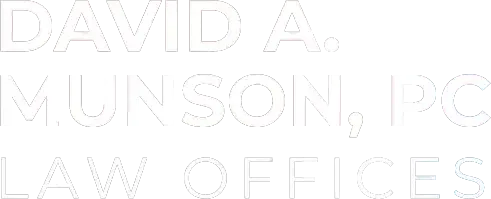What Types of Assets Can Be Included in a Will in Texas?
What Types of Assets Can Be Included in a Will in Texas?
Creating a comprehensive will is one of the most important steps in ensuring your wishes are honored and your loved ones are provided for after your passing. In Texas, a will allows you to distribute a wide variety of assets, but understanding which items can and cannot be included is key to making your estate plan effective.
At David A. Munson, PC, we help Houston residents draft wills that reflect their goals and comply with Texas law. Here's a guide to the types of assets you can include in your will—and which ones you can't.
Assets You Can Include in a Texas Will
- Real Estate
You can leave residential or commercial real estate to beneficiaries in your will. This includes your primary home, vacation property, land, or rental properties located in Texas or other states.
- Personal Property
Tangible personal belongings are commonly addressed in wills. These items may include: - Vehicles
- Jewelry
- Furniture
- Art or collectibles
- Electronics
- Household goods
- Bank Accounts
Accounts held solely in your name can be distributed through your will. This includes checking, savings, and money market accounts—provided they don’t have a payable-on-death (POD) beneficiary designation.
- Investment Accounts
You can include stocks, bonds, mutual funds, and other brokerage assets, again, as long as they are not jointly owned or designated with a TOD (transfer-on-death) beneficiary.
- Business Interests
If you own a business or shares in one, your will can designate who inherits your ownership interest, subject to any partnership agreements or corporate bylaws that may restrict transfers.
- Digital Assets
Increasingly, digital assets such as cryptocurrency, domain names, and social media accounts are being addressed in wills. While access and transfer of digital property can be complex, you can name someone to manage or inherit these items.
- Residual Assets
Your will can also include a “residuary clause,” which covers any property not specifically listed. This ensures no asset is accidentally left out of the distribution plan.
Assets You Cannot Include in a Will
Some assets bypass the will entirely because they already have a designated beneficiary or joint ownership arrangement. These include:
- Life insurance policies with a named beneficiary
- Retirement accounts (like IRAs and 401(k)s) with designated beneficiaries
- Jointly owned property with rights of survivorship
- Trust assets held in a living trust
- Accounts with POD or TOD designations
To ensure these non-probate assets align with your estate planning intentions, it’s important to review and update your beneficiary designations regularly.
Work With a Texas Estate Planning Attorney
Creating a valid and thorough will requires more than just listing assets—it involves coordinating your will with other estate planning tools to ensure a smooth transfer of property. At David A. Munson, PC, we guide Houston clients through the entire process, from identifying assets to finalizing legal documents that reflect their legacy.
Contact us today to begin creating a will that fully captures your wishes and protects your estate.











